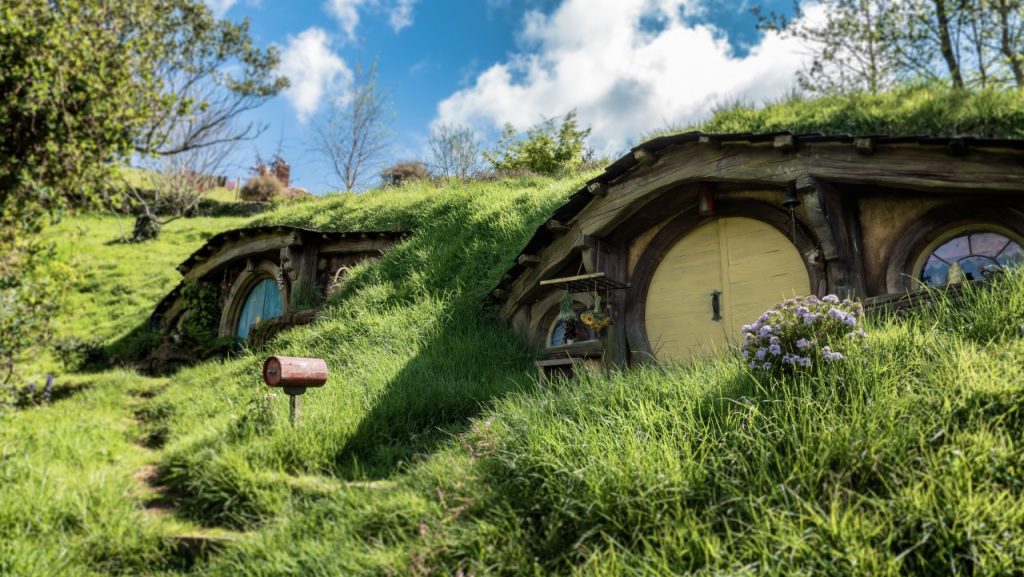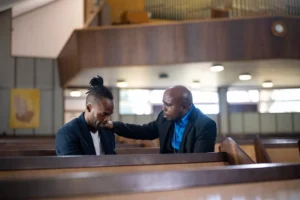I finally saw “Ant-Man and the Wasp.” And I sat on the edge of my seat until the very end. When the credits started rolling, I hated to leave the characters and go back to normal life. I wanted to watch Scott, Hope and all the others pursue impossible goals again, to see more of what happened to them after the story or — even better — to be in the story with them.
I’ve felt this way about plenty of other movies, too. Every Marvel flick has characters that stay with me long after the movie ends, and whenever a “Chronicles of Narnia” song plays on my Pandora station, I get goosebumps.
There’s something about these stories. They stir something deep in us, something that resonates with the epic nature of the conflict on the screen.
It’s like we want to be part of something bigger than us, like we were created to be in stories like these. It feels like these stories are wired in us.
C.S. Lewis wrote:
If I find in myself a desire which no experience in this world can satisfy, the most probable explanation is that I was made for another world.
We know there’s more to life than normal life. All around us, we see struggles about right and wrong, good and bad, light and dark, death and life. Ever since Adam and Eve first sinned, conflict between these options has never stopped.
Our salvation illustrates these struggles, too. Paul wrote, “…at one time you were darkness, but now you are light in the Lord.” The stories that resonate with us are the ones that acknowledge the reality of these very real conflicts.
We want to fight epic battles alongside superheroes. We know there are epic battles to fight, and we feel like we should be there.
The Story of All Stories
I once heard a novelist talk about the story structure she follows as she plans out her books. She always starts the action with a bang at the beginning and adds in several layers of conflict that make the hero’s story more interesting. Near the end of the book she makes it look like the hero will never achieve victory, that the odds are impossibly stacked against him. She called it the “dark night of the soul.” This is the moment before the triumphant conclusion.
Sound familiar?
Like the dark night when Jesus died on a Roman cross. Soon, He would conquer death and rise again, but His friends didn’t know that yet. They were living the story, and the odds looked impossibly bleak.
This is why epic stories feel so magnetic. We were created as part of the most epic story ever written.
One of the definitions of “epic” is “particularly impressive or remarkable” (Oxford Dictionary). But before we used it informally as an adjective, this word was used primarily as a noun. Originally, an “epic” was “a long poem, typically one derived from ancient oral tradition, narrating the deeds and adventures of heroic or legendary figures or the history of a nation” (Oxford Dictionary, emphasis added).
The history of a nation — a people. God’s people.
God created people to mirror His image. To glorify Him as Creator. Of course, ever since the Garden of Eden, there has been conflict in the way of that goal.
God set aside a family to become a great nation, and they were enslaved. He rescued those slaves and established their little nation, but they kept turning away from the God who had delivered them. He sent His Son to rescue them eternally, and they ignored Him and ridiculed Him. Then, in the darkest night in history, the Son was killed on a Roman cross.
When God wrote this epic story of the world, He wired it in us, too.
Our Epic Stories
When we see a movie that resonates with that wired story, we long to be a part of it — part of the action, the quest, the victory, even the difficulties. We want to be in the thick of the story (even if it’s a battle) because we identify with the people in it. Because it’s our story.
Every time we go to the theater, we are looking for another glimpse of this story wired in us. We want the good guy to do what’s right, even if he must sacrifice. We want him to win. We want the bad guy to pay for his misdeeds and leave the story forever, returning our favorite characters to their perfect storybook worlds.
These epic stories mirror the story humanity has lived since Creation. Our history is one of trouble, sorrow, need and a great sacrifice. But Jesus, our Hero, made that sacrifice, and through His gift we are rescued and guaranteed eventual victory over all the conflicts we will face.
Our normal, ordinary lives aren’t normal, because we’ve been given so much more and have so much more to look forward to. (Read more about this.) We live epic lives, and when the credits roll on our personal stories, we will be finished with these echoes and glimpses and see God in all His glory.
As C.S. Lewis said in “Letters to an American Lady”:
There are better things ahead than any we leave behind.
Copyright 2018 Lauren Dunn. All rights reserved.










